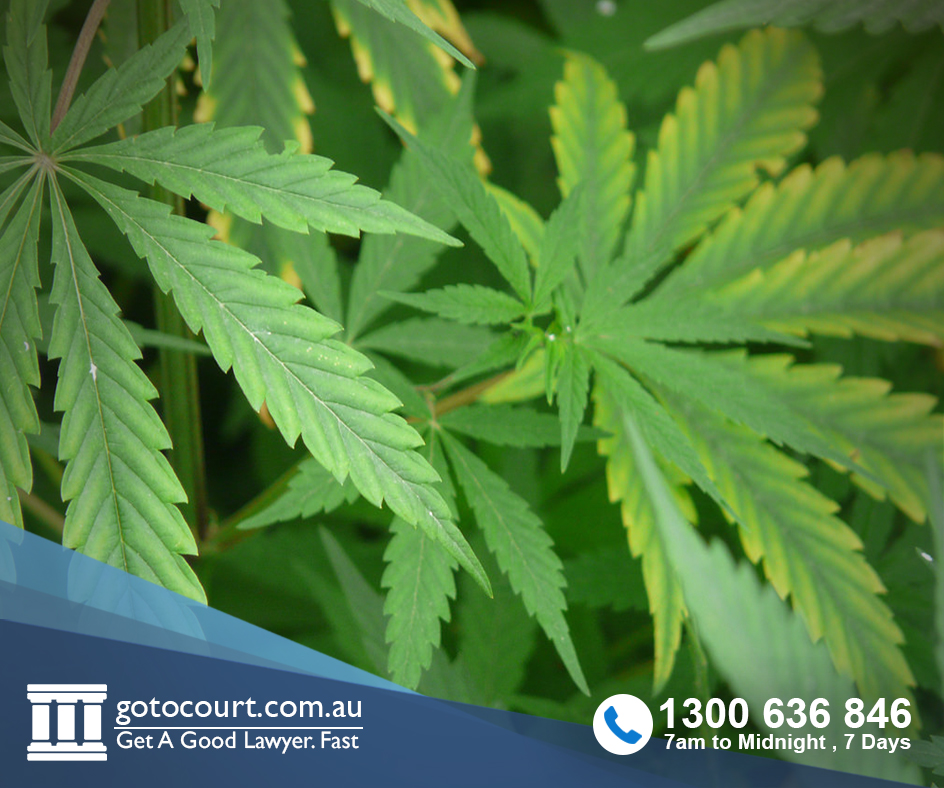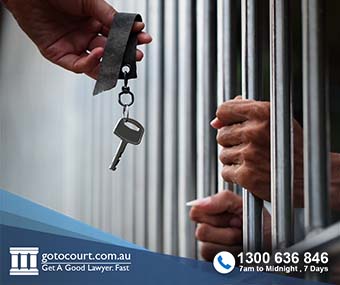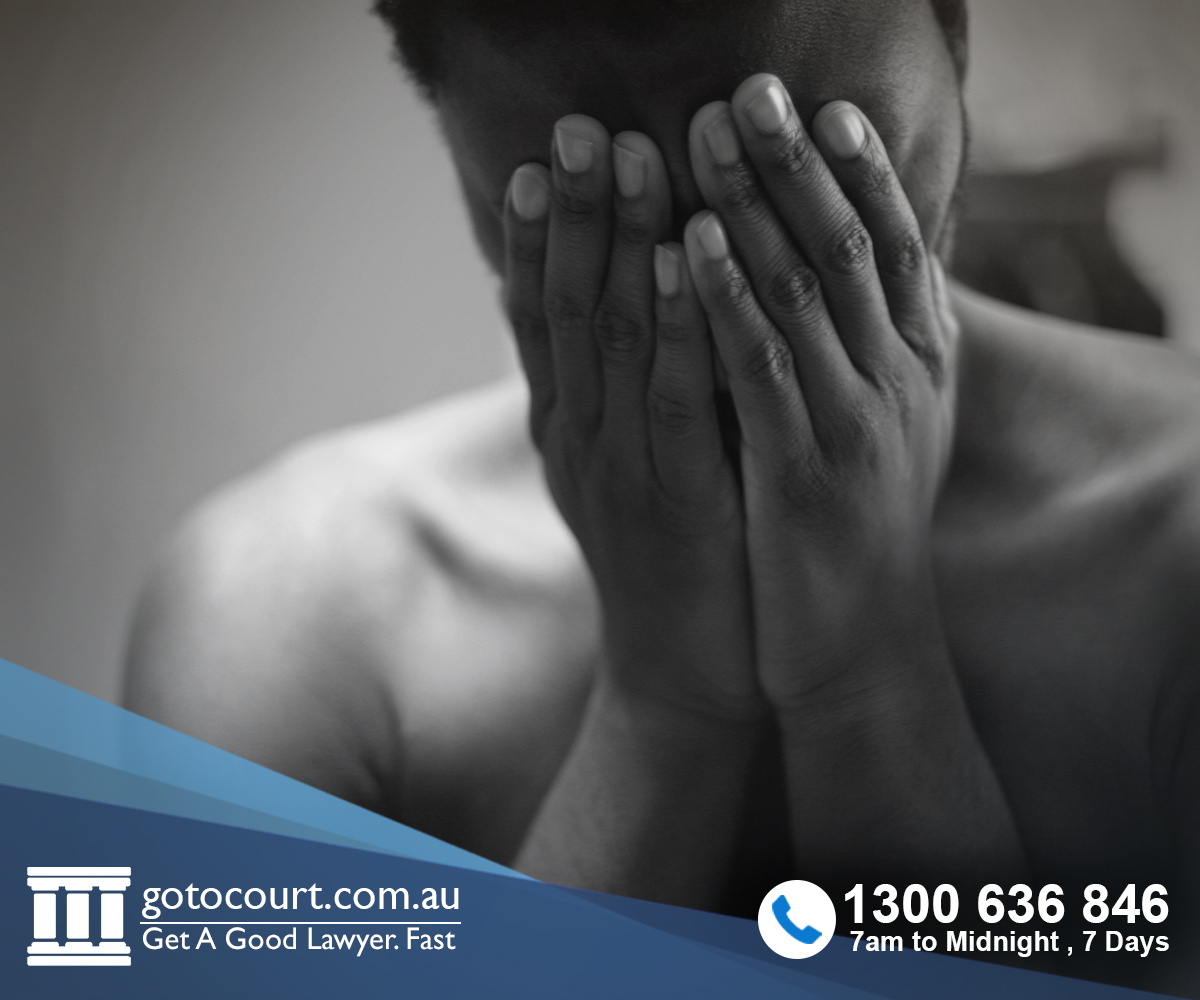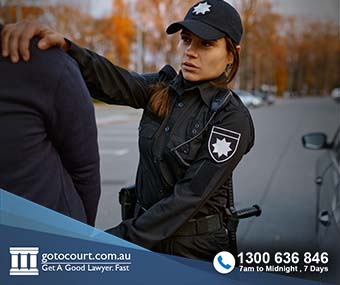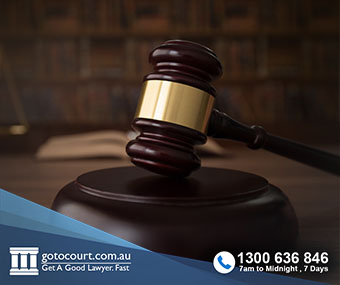Domestic and Family Violence in Queensland
The main legislation dealing with family and domestic violence in Queensland is the Domestic and Family Violence Protection Act 2012. There are also some relevant provisions in the Criminal Code 1899 that may apply.
This article provides an overview of the relevant provisions and definitions provided in the Domestic and Family Violence Act 2012. The Act has three stated objectives:
- Maximise the safety, protection, and wellbeing of people who fear or experience domestic violence and to minimise the disruption in their lives;
- Prevent or reduce domestic violence and the exposure of such violence to children; and
- Ensure that individuals who commit domestic violence are held accountable for their actions.
It is important to note that there have been recent amendments and proposals to amend Queensland’s domestic and family laws. Details of this can be obtained from our Legal News post New Laws for DV in Queensland.
What is domestic violence in Queensland?
The Domestic and Family Violence Protection Act 2012 defines domestic violence as violent behaviour by a person (the defendant) towards another when they have a domestic or family relationship. Violent behaviours include:
- Physical or sexual abuse;
- Emotional or psychological abuse;
- Economic abuse; and
- Conduct that is threatening, coercive, dominating, or controlling.
The behaviour must cause the person to fear for their safety or wellbeing. The definition also includes conduct that causes the person to fear the safety or wellbeing of someone else.
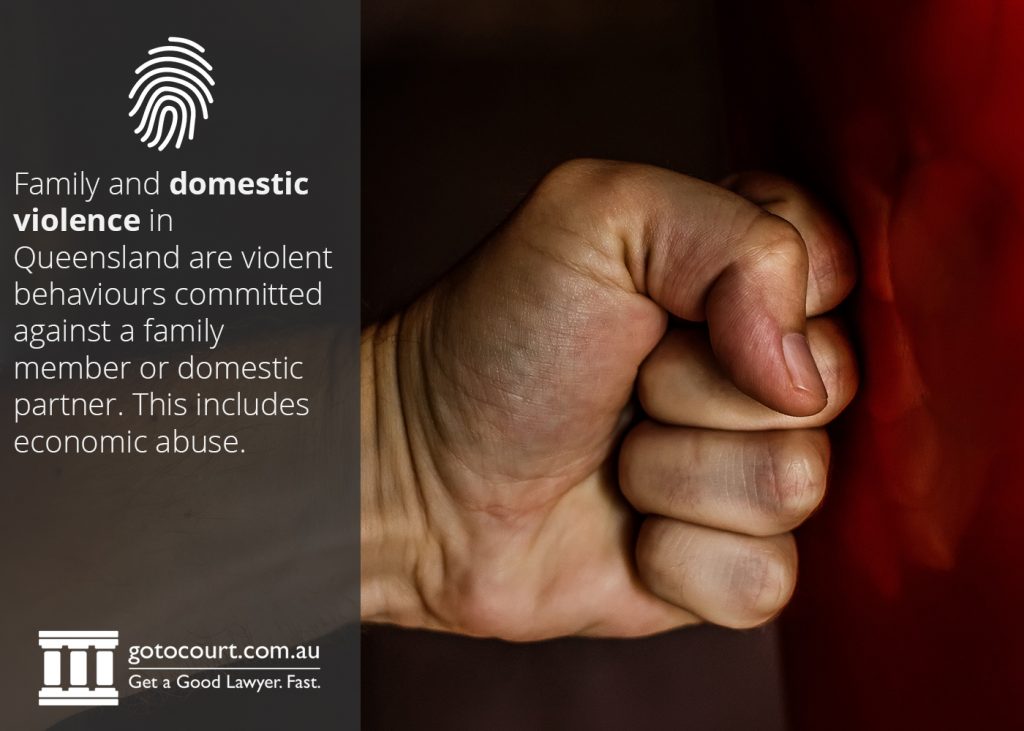
Examples of domestic violence include causing physical injury to a person or threatening to do so. Forcing a person to engage in sexual activity, depriving them of their liberty, stalking or unlawfully monitoring that person is conduct that is also considered to be domestic violence. Another example is when a person installs a GPS tracking device in their former partner’s vehicle to monitor their whereabouts.
What kinds of relationships are covered by domestic violence legislation in Queensland?
The relevant relationships are those between intimate personal partners, relatives, and informal care relationships.
The Domestic and Family Violence Protection Act 2012 defines intimate personal relationships. These relationships are between married couples, de facto couples, and individuals who are engaged. It includes both current and former partners.
Relatives are defined under section 19 as people who are, or have been, connected to a person by blood or marriage. This includes parents, grandparents, in-laws, step-parents, siblings, aunts, uncles, nephews, and cousins.
A wider concept of relative is applied to Aboriginal and Torres Strait islanders, members of certain non-English speaking backgrounds, and people with particular religious beliefs.
The Act also provides that domestic violence is recognised in an informal care relationship. These types of relationships exist when one person is dependant on the other person for their assistance in their daily living.
For example, a care relationship exists when one person dresses and prepares another person’s meals on a daily basis. An informal care relationship does not exist if the person helping is under a commercial arrangement. This means there is no informal care relationship between a nurse who visits the person as part of her job.
What are Domestic Violence Orders and who can apply for one?
The Domestic and Family Violence Protection Act 2012 provides protection to those experiencing domestic and family violence by allowing individuals to apply for a Protection Order (referred to as a Domestic Violence Order).
Protection Orders are called Domestic Violence Orders in Queensland
Protection Orders aim to prevent the continuation of abuse occurring within a recognised relationship. All orders must contain certain conditions, such as the condition that the defendant be of good behaviour towards the protected person and not commit domestic violence against that person or their children.
The court may also impose any conditions that the court thinks is necessary in the circumstances and is in the interests of the protected person or the defendant. It is important that you tell the court, your solicitor and / or the police what conditions you would like included in the Protection Order to meet your situation.
A Domestic Violence Order can be obtained on the protected person’s behalf
In addition to the person seeking protection, a child, relative, or associate may apply for a Protection Order. Examples of an associate of the aggrieved person include a current spouse, a work colleague, or someone who lives in the same household.
Anyone in Queensland can apply for a Protection Order directly by attending their local court. Alternatively, the person seeking protection can request a police officer to make an application on their behalf.
It is a good idea to first speak to a lawyer before you submit an application for a Protection Order.
If you feel your safety is under immediate threat, contact the police on 000.
What if there has been a breach of the Domestic Violence Order?
Breach of a Protection Order in Queensland is a criminal offence and can result in significant penalties. Any breaches should be reported to the police as soon as practical.
See our article Domestic Violence Order Breaches in Queensland.
For further details on how to apply for a Protection Order in Queensland, read Applying for a Domestic Violence Order in Queensland.
You can also obtain general information about these orders from the article, Protection Orders in Queensland.

